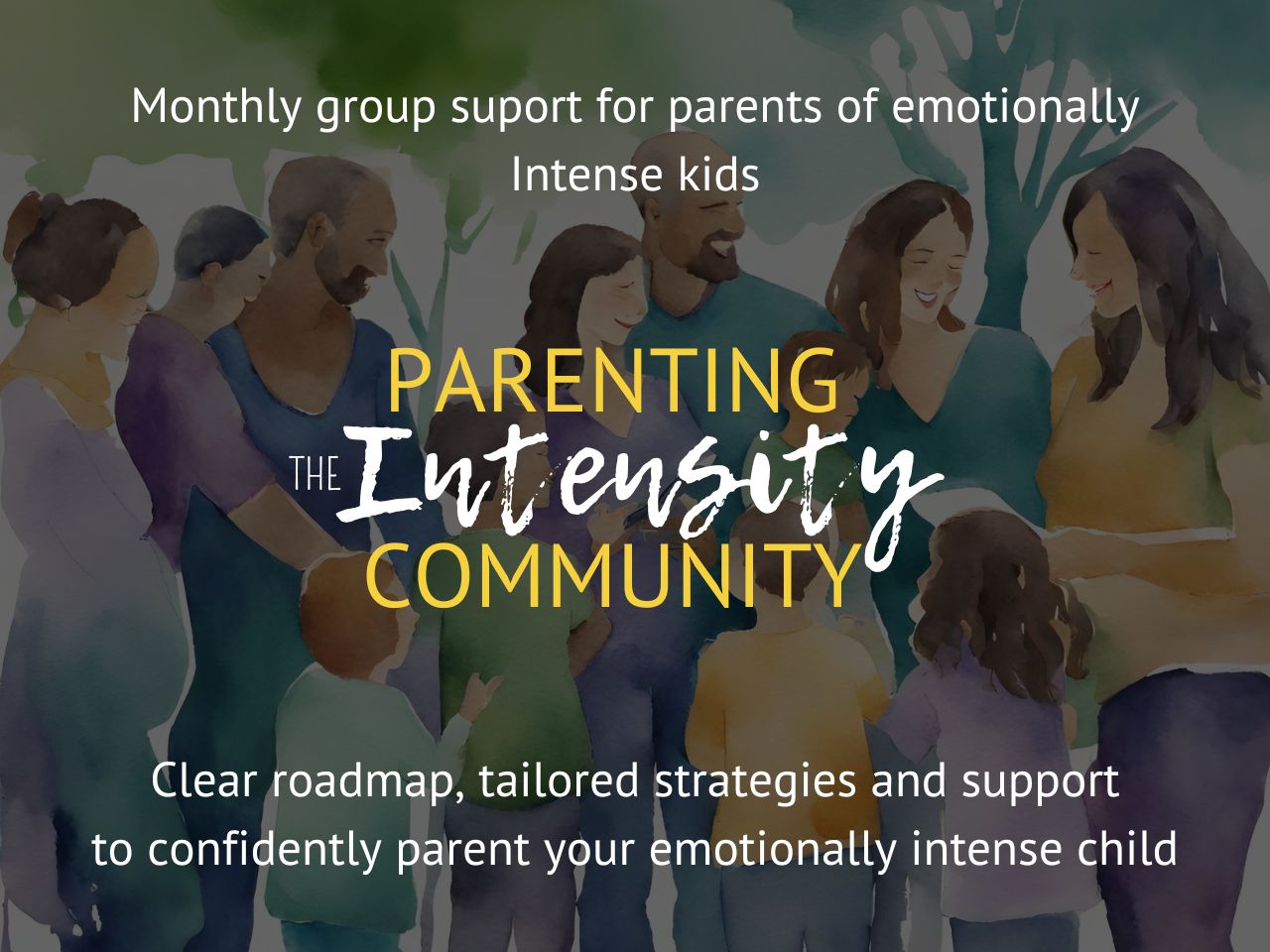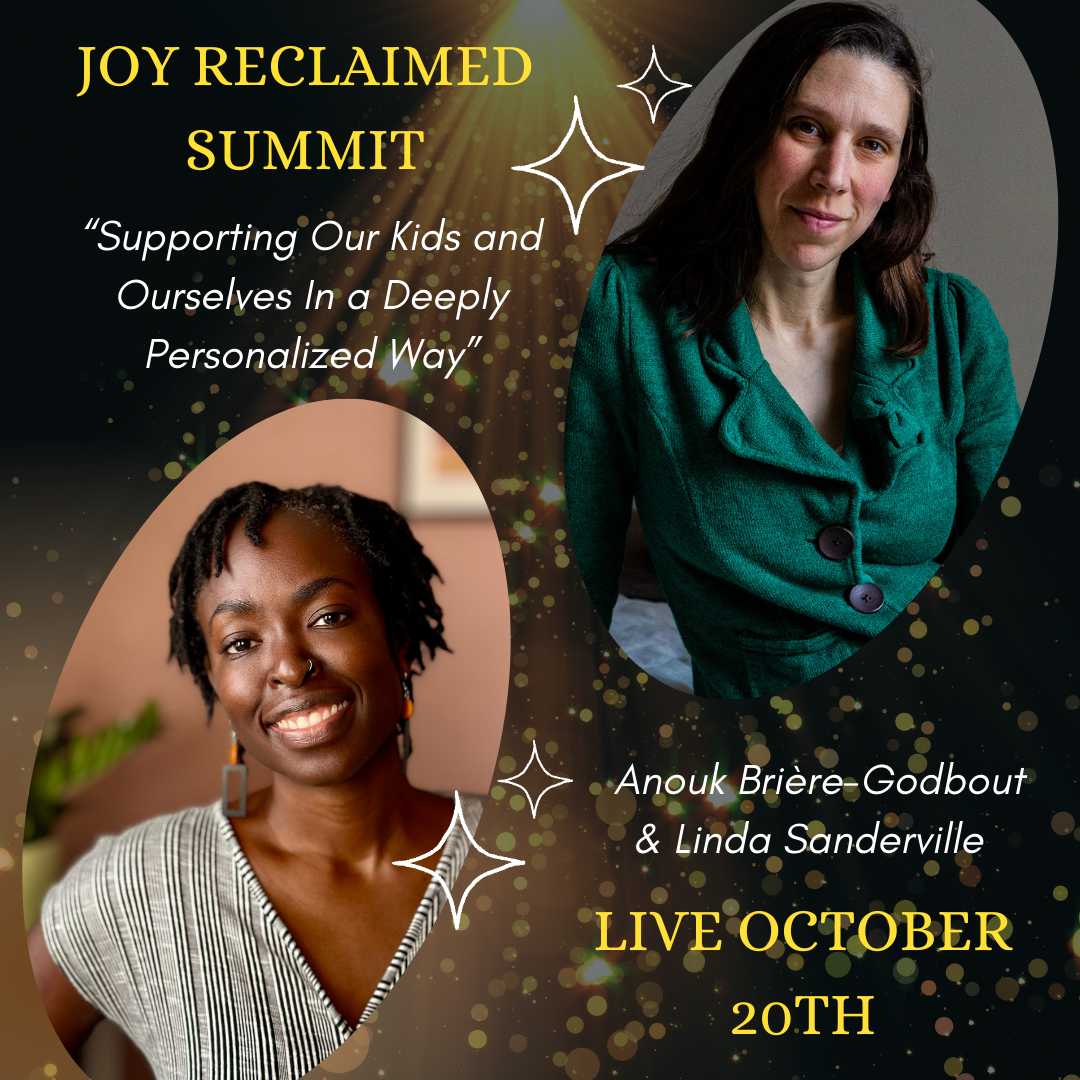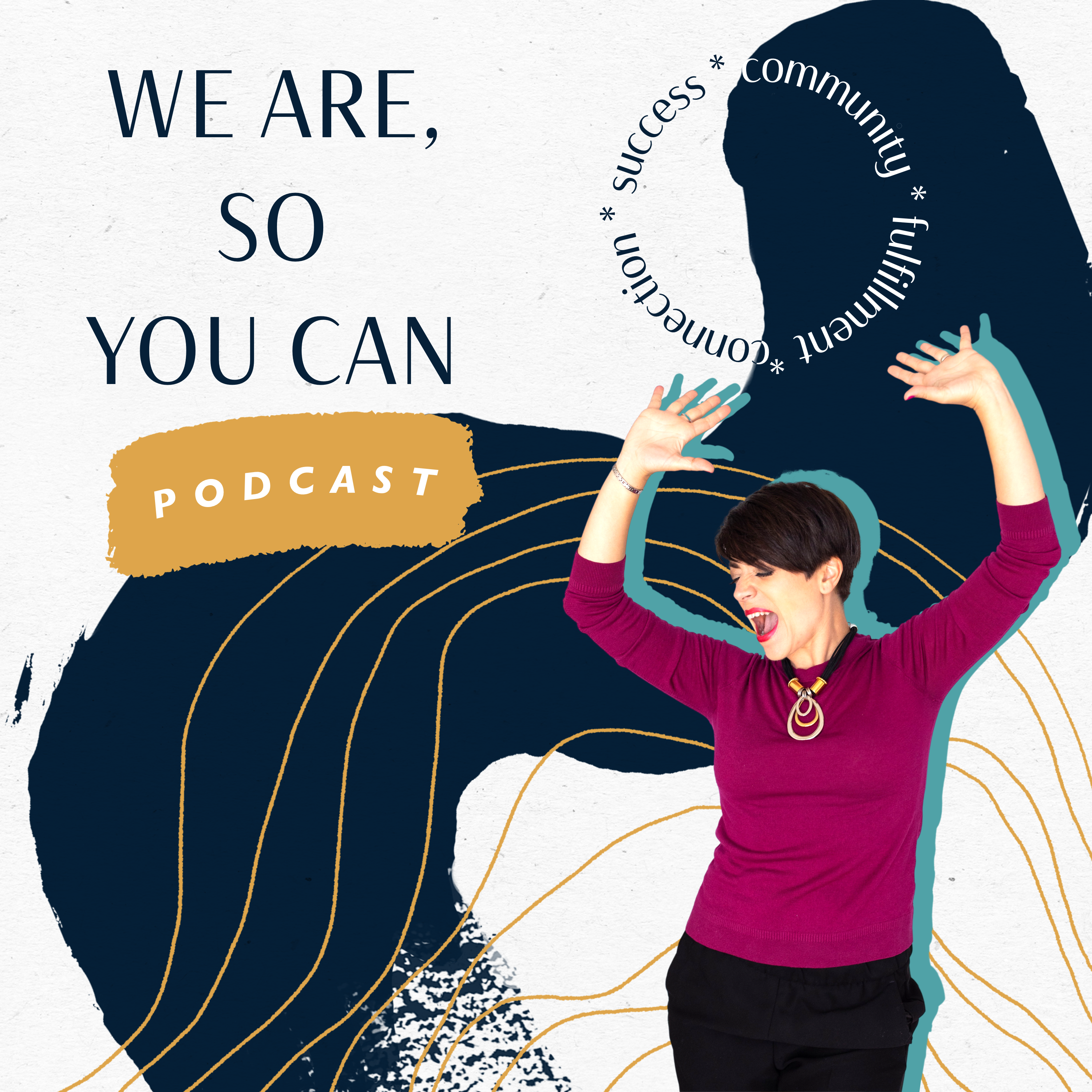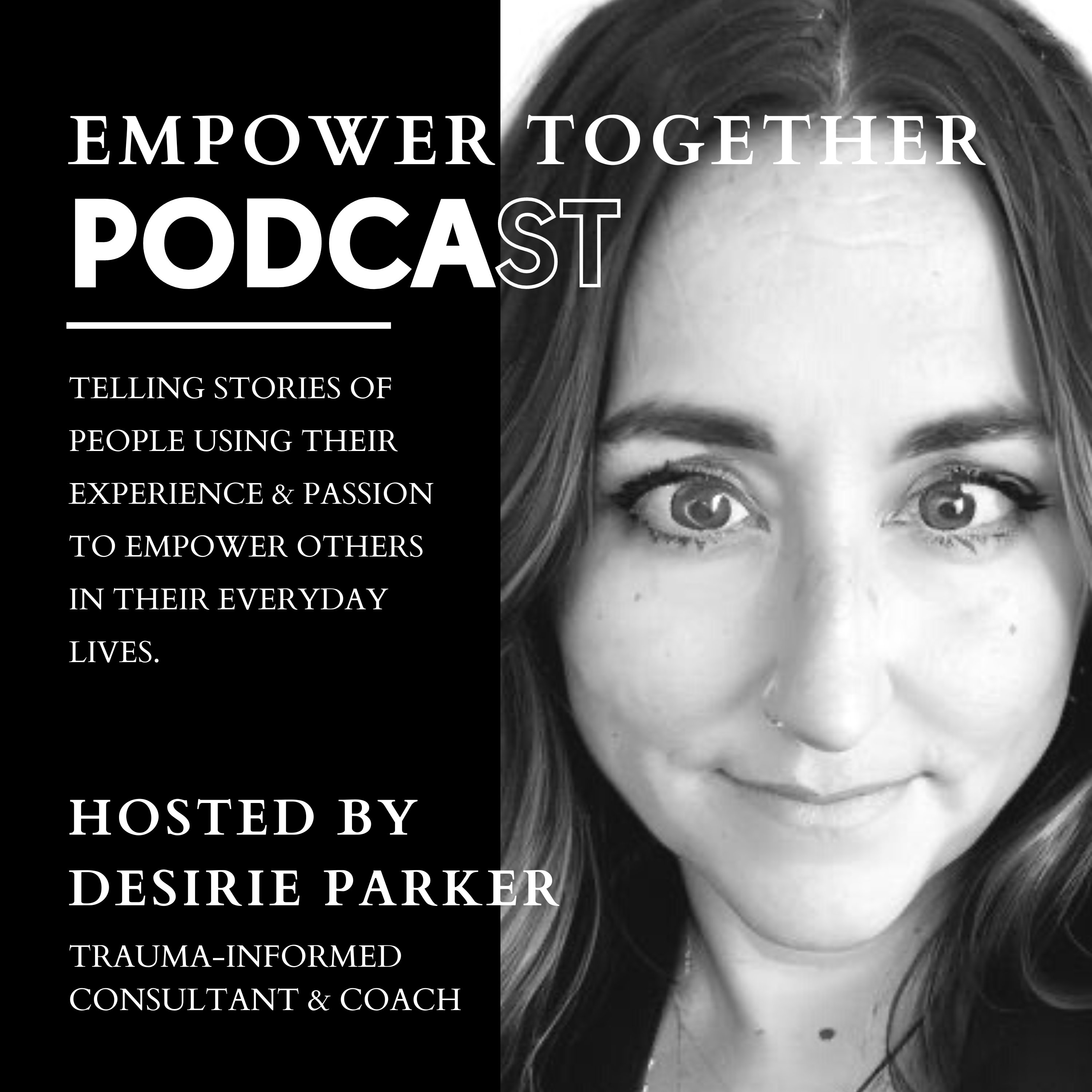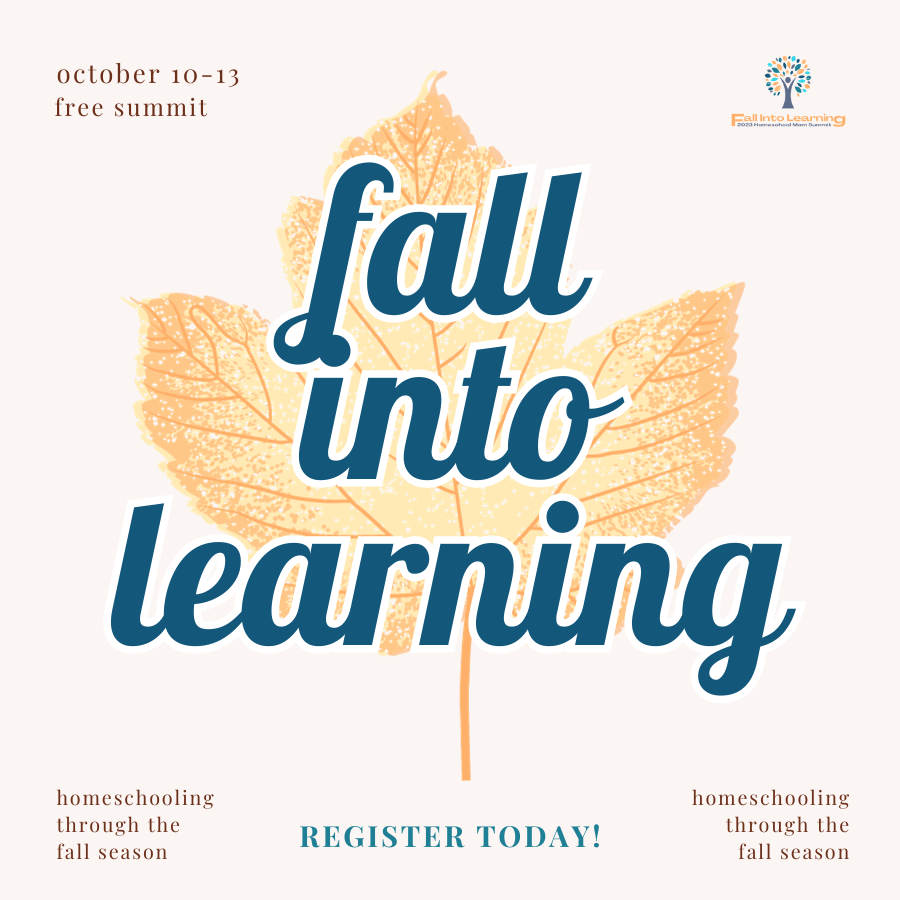0 Commentaires
029 – Executive Functioning 101 for Intense Kids with Carrie Bonnett
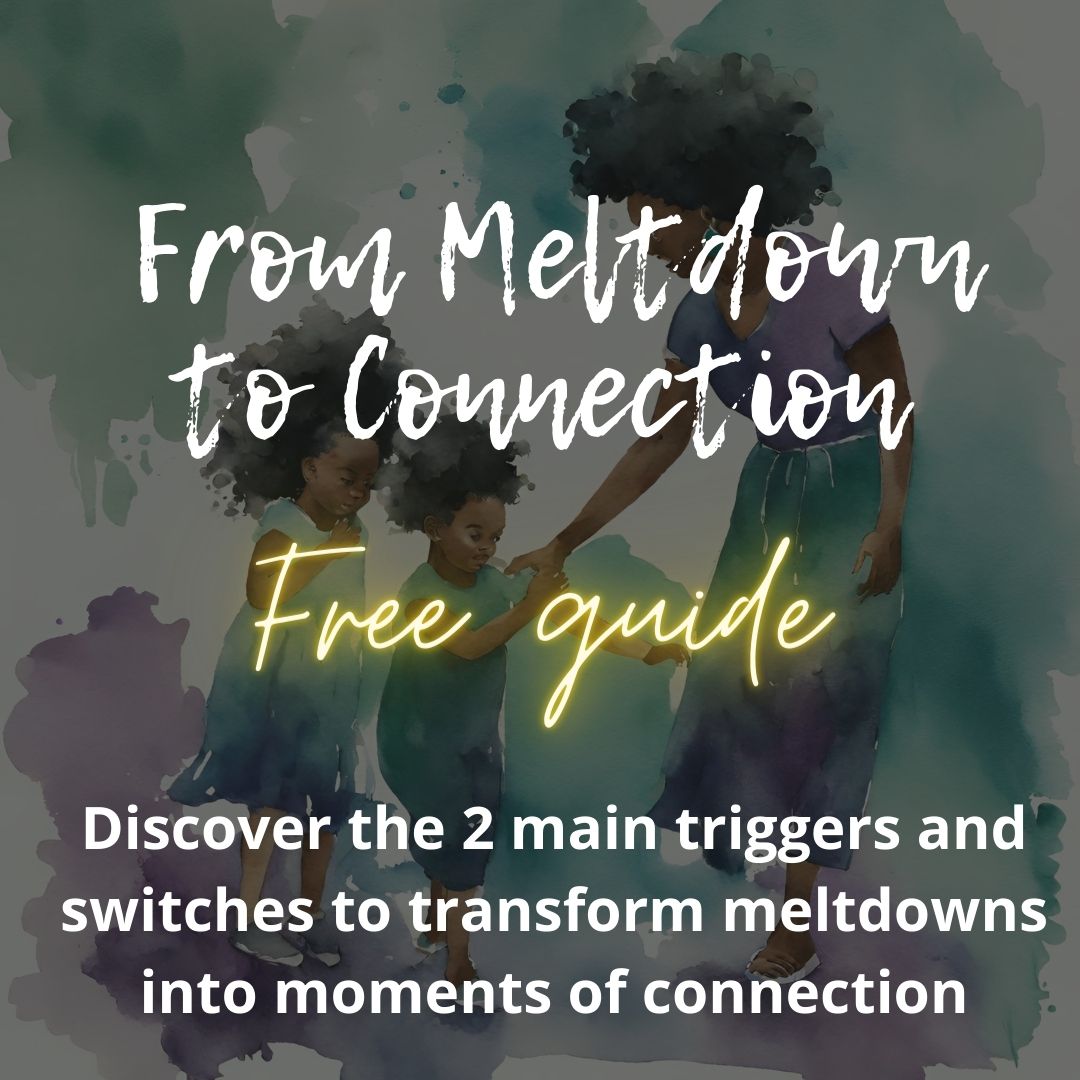
Discover the 2 main triggers and 2 switches to transform meltdowns into moments of connection
- Understand why these triggers lead to emotional outbursts.
- Strengthen your bond with your child by switching the way you react
- Learn how to create a calmer and more peaceful atmosphere at home.
Episode 029 show notes
🎙️Executive Functioning 101 for Intense Kids with Carrie Bonnett
In today's episode, Anouk sits down with special guest Carrie Bonnett, a veteran teacher and executive function coach, to discuss the critical role of executive function in the lives of emotionally intense children.
Together, they explore the challenges and strategies for managing tasks, time, and emotional control, shedding light on the universal nature of these struggles and the importance of explicit teaching around executive function. From identifying signs of executive function challenges to fostering independence in children, this episode provides valuable insights and practical tips for parents navigating the complexities of parenting intense children.
Key takeaways of this episode:
🌿 Understanding What Executive Function is
Executive function skills, such as task initiation, working memory, and time management, are crucial for everyday tasks, including academic work and emotional regulation.
Developmental factors, such as the late maturity of the prefrontal cortex, impact these skills and for most emotionally intense kids mean it's important to explicitly teach and support them in children.
🌿 Strategies for Supporting Children
Practical strategies such as time tracking, minimizing distractions, providing choices, visual cues, and fostering independence to help children manage their time and tasks.
Observing children's behavior and addressing factors like sleep, exercise, and proactive measures can help manage executive function challenges effectively.
🌿 Self-Care for Parents
The importance of parents managing their own time and stress levels to create a supportive environment for their children's success, and the encouragement to find parenting methods that work for both the parents and their kids.
"The goal of parenting, is to foster independence someday. So the more that we can give them a chance to use their brain to figure it out, the better."
You can stay connected by subscribing to the "Parenting the Intensity" podcast and following us on Instagram @parentingtheintensity
You've got this! Take a deep breath, keep going, we're all in this together!
Full Transcript
*Automatically generated. Will be revised soon to make it more easy to read.
Anouk:
Welcome to the podcast. Today on the podcast, we'll talk about executive function. What's that? Executive functions are all things that allow us to function in daily life, like getting started on task, finishing task, keeping information in our mind to be able to do tasks and so much more stuff. And It's something that a lot of our emotionally intense kids struggle with, but you might have never heard of it. Or if you're like me, you've heard of it, Or you're still completely confused. So today's guest will help us get less confused and understand More what executive functions are and how we can support our kids, with them. So the guest is Carrie Bonnet. She's a veteran teacher and lifelong listmaker. She's an executive function coach based on in Bend, Oregon, where she lives with her husband and 2 children. Carrie works with students and families all over the world. Her no shame Approach and the strategies she teaches empowers students to thrive in life and in school, help parents and teachers to better support their children, and help adults get on top of all that life requires, because we need those skills all our life long. And in addition to coaching, she also has an adjunct instructor. She is an adjunct instructor for early carry Career teachers at University of Portland in Oregon. So let's welcome Carrie over on the podcast.
Anouk:
Welcome to Parenting the Intensity, where we'll talk all about how we can drop the general parenting advice that doesn't work with our emotionally intense kids anyway and let go of the unrealistic expectations society puts on us as parents. Together, we'll find solution and ideas that work for you and your kids. Chances are, deep down, you know what they need. But you need a little encouragement to keep going on other days and permission to do things differently And help you fully trust that you already are a wonderful parent to your exceptional but challenging kids.
Anouk:
Do you read all the things, listen to all the things, take all the courses, and you know all of things about parenting, but you struggle to actually Apply them in your real life, then you're in luck. I just started the Parenting the Intensity community, which is A, monthly group support for parents of emotionally intense kids. And the goal is exactly that, to take all the information you learn From the podcast and from all the other sources, and adapt them so that it work for your child and your family, Your reality. Because things can work, but not always the same way for everybody. So the same thing might Need to be adapted to work for you. And sometimes it's it's hard to sort through everything to choose the right things that so that you can really enjoy your life and your kids, Not always being afraid of the next outburst. You can join by clicking on the link, in the show notes or on the website. Hi.
Anouk:
Welcome, Carrie. Glad to have you here today.
Carrie Bonnett:
Thanks for having me.
Anouk:
So today, we'll talk about executive functioning, which is something that I'm pretty sure lots of people just don't know Is a thing. But first, will you tell us a bit about you, who you are, and why you do what you do?
Carrie Bonnett:
Sure. So I'm Carrie Bonnet. I am an executive function coach. We'll get to that in a little bit. But, I was a teacher for a long time. So I come to this work, from the teacher side. So I was a classroom teacher for middle and high school students, for 14 years, and I still actually do a little bit of teaching. I'm I work with early career teachers, so brand new teachers.
Carrie Bonnett:
So I I get to, see sort of their journey from the from the beginning, which is really fun too. But the coaching part, I have this coaching practice where I work with Students and adults too
Anouk:
Mhmm.
Carrie Bonnett:
Who are just struggling to get their stuff done. And so The reason I sort of came to it is the it started during COVID. I didn't mean for it to, really, but but I started this gig COVID. And what was happening is I was seeing hearing from parents, friends of mine, kids who were at home doing school for however long, And people were saying like, gosh. I thought my student was doing okay at school Mhmm. Until they were sitting next to me in my house doing school.
Anouk:
Mhmm.
Carrie Bonnett:
And I realized, like, something's up.
Anouk:
Yeah.
Carrie Bonnett:
And so I started to think like, well, that's interesting. And as a teacher, I always sorta had a heart For the kids that were struggling Mhmm. And not and they didn't didn't know why. Like, they couldn't explain. Like, why didn't they turn in their homework? Or There were no good answers. Right? Like or why could they not sit still for very long, or they got distracted very easily, or why could they start a project but then didn't finish So so all of those sort of things came together, and then I started to learn more and more about this thing called executive function Mhmm. Which Didn't come up in my teacher training. I mean, I'm 49 years old, so it's been a while since I had my teacher training.
Carrie Bonnett:
But,
Anouk:
but Would you say now it's addressed in teacher training?
Carrie Bonnett:
Even know. I mean, my my teachers are getting it because I'm you know, it's important to me. But I think they're getting a little. I think it's better. But I'm not even sure that it's it's a huge part of their training.
Anouk:
I don't think it's mainstream.
Carrie Bonnett:
Right. Right. So I just realized there was a great need, and I was right. There is a great need Mhmm. For for figuring out brains. And And that's the way I approach it too is, like, it's brain stuff. Like, let's let's blame this stuff on your brain, not on the human. Right? Like, you're us.
Anouk:
Yeah. Because I was that.
Carrie Bonnett:
Delightful kid or super smart or, has all these other gifts, and and this, There's a lot of shame around it. So so I like to I like to take the kind of coaching approach and the no shame approach. Let's just blame the brand for this stuff. We'll get into all that. Yeah.
Anouk:
Yeah. And but we can, though, like, and I just wanna preface this, but executive function is something that we We all have, basically. Like, it's all something that we have to deal with. We had an episode on, like, Senses and sensory issues, and it's the same. Like, we all have that in our brain and our body. But then some people will struggle with some aspects of executive functioning more than others, and we can all struggle with different in a different level. Right?
Carrie Bonnett:
Yeah. Yeah.
Anouk:
So what is executive functioning? Yeah.
Carrie Bonnett:
Yeah. Let's do it. So I don't really love the term. I wish we had some I wish we had something else, But I I the the short definition that I like to give is that the, executive functions are those brain skills that help us get our stuff done.
Anouk:
Mhmm.
Carrie Bonnett:
So what that means is I I think the reason why the executive function term is there is because it helps These skills help us to execute a task. So I think that's where it comes from, but I still don't love it. I wish we had something But what we're talking about are things like getting started.
Anouk:
Mhmm.
Carrie Bonnett:
That's task initiation. Things like time management, things like, organization of your stuff, of your thoughts, of your digital files, of your Sports gear, planning, prioritizing. How do I know how to get something something big done on time, And how do I know, like, what what's most important?
Anouk:
Mhmm.
Carrie Bonnett:
Finishing. Like, we talk I talked about, like, finishing it. So it's getting started is 1 skill, and then finishing, which in the brain world, it's called goal directed persistence. But can can we
Anouk:
Complicated word. But
Carrie Bonnett:
I mean, I know. I was all these sciency words. All the how do we can we do all the things that is necessary in order to finish? So this is the sort of thing we're talking about. And the annoying thing about executive functions is that There's a whole lot of skills, but they're all connected. So, you know, you have to get started on a task that even when you're tired, even when it's boring. Mhmm. And you have to finish it. So that's like a whole other and you have to focus.
Carrie Bonnett:
And, so The executive functions are these types of skills Mhmm. Just to get our stuff done. And it's life stuff. It's not just school stuff. I see a lot of students, but, you and I both know. Like you said, we all have to use these skills.
Anouk:
Yeah. It's everyday basis is to do laundry. We need to do scales, basically. Yep. Exactly. And to get stuff done For our kids.
Carrie Bonnett:
Yes. Exactly. Exactly. And like you said, it's every brain has strengths and and areas for growth. So, Like, I'll tell you right now, task initiation, getting started is one of my challenges. My brain does not love to get started on the boring stuff.
Anouk:
Mhmm.
Carrie Bonnett:
So, you know, that's where I come in is I teach people strategies to try when they're struggling and strategies to And tools to use so that it makes those things less of an impact on a regular basis. Yeah. Makes bullet life easier.
Anouk:
Yeah. And what would like, if we have a child's struggles in general, like people who listen to the podcast do have children that have Intense Emotionally, so they will meltdowns or things like that. How would executive function impact that?
Carrie Bonnett:
Yeah. Well, Emotional control is absolutely a skill, an executive function skill, and impulse control. So those are 2 things that are, yes, connected. And like I said, they're all sort of connected. Right? So, like, if It's something that a child doesn't really wanna do Mhmm. Which I'm guessing is is what you're referring to.
Anouk:
The kids don't wanna do anything.
Carrie Bonnett:
So maybe there's an outburst or maybe there's, some kind of impulsive behavior, related to getting started or changing gears. Mental flexibility, cognitive Ability is another skill.
Anouk:
I would say that's a big one. Like, when the kids need to stop doing something to do something they prefer less, that's often where you have a big reaction.
Carrie Bonnett:
And so I talk to parents a lot about sort of managing transitions when possible or setting up scaffolding so that, so that This child knows what to expect, because it is, like you said, often a they have to go from, like, a preferred task Mhmm. To something Non preferred. And that's often there's a lot of emote there's it's disappointing. They're angry about it. They didn't know. You didn't tell me. Yeah.
Anouk:
So Even though we we probably did 10 times.
Carrie Bonnett:
Probably. Yeah. Absolutely. Absolutely. But, also, like, I encourage parents to just get real curious too about and and observe, maybe even, like, make notes of situations when, maybe not in the moment. In the moment, just do the best you can. But to to be curious, like, what are the the biggest Dreamers, I guess.
Anouk:
Yeah. What are the moments when there's something going on?
Carrie Bonnett:
And then, also, you know this full well, is is Like, proactive things can be more helpful. Like like, does that kid need a snack? Mhmm. How was their sleep? Did they have really bad sleep last night? Exercise. These sorts of things are critical for brains and bodies. Mhmm. Doesn't really help in the moment. But if if if we're able to get curious
Anouk:
Mhmm.
Carrie Bonnett:
Then we can sort of maybe try to To cut it off the next time.
Anouk:
You know? And would you say, like, for example, a child that struggle with lots of those executive function in school, when they get home, they might Or they just might add school too. Like, they might melt down because it's just too much to ask to them too, and they get overwhelmed with the tasks.
Carrie Bonnett:
Yeah. I mean, think about so a student has to do sit at their desk and do some kind of independent work. Right? Like, And and we sometimes think, like, we'll just sit there and do the work. But
Anouk:
It's not that easy.
Carrie Bonnett:
No. There is a lot more to it. Right? Like, they have to first, they have to understand the Instructions.
Anouk:
Mhmm.
Carrie Bonnett:
And they have have focused on that to understand the instructions. Then they have to be able to literally sit and not move their body. They also have to be able to get started on the thing independently.
Anouk:
Mhmm.
Carrie Bonnett:
And then they have to sort of keep going till completion. Mhmm. And then not only But then they have to remember to turn it in.
Anouk:
Yeah. Which is a big thing.
Carrie Bonnett:
Right. So there so, you know, we I love talking to teachers about this stuff too, because I think it's another way to help kids is that sit down and do your work is way harder for some brains. Yeah. Some kids can do it. Mhmm. But that's because they have these skills.
Anouk:
Mhmm.
Carrie Bonnett:
And the what the research says about executive function in Kids is that these skills must be taught. They kids just don't, you know, learn them from the air. They They do. They have to be explicitly taught. And so that's another reason why I love talking to teachers because they're with teachers a lot during the day. Mhmm.
Anouk:
And it's where they do the most of the the schoolwork also, so it it makes sense. And it's a lot of those like, we don't have as much In our everyday life with our kids, I would say of those things, we do. We do. Sure. Sure. Yeah. Like, putting on shoes is still a task that might be, Like, yep. A real life example from my life right now.
Anouk:
Yeah. But, yeah, it can be hard. So let's let's take that as an example just so we can, like, make it very comfortable.
Carrie Bonnett:
Yeah.
Anouk:
So if you have a child that Needs to get dressed to go out of the house, and it takes forever. Like, what might be The reason. There's, of course, many reasons possible reasons. But
Carrie Bonnett:
For sure.
Anouk:
Let's say it's not to go to school. Let's say it's to go to somewhere they wanna go.
Carrie Bonnett:
Oh, we're fine. Okay. Number 1. Yeah. Uh-huh.
Anouk:
But it's still hard to get out of the house. Absolutely. What can be at play, for example?
Carrie Bonnett:
Yeah. I mean, it part of it is focus. Right? So the the There's lots of fun things in your house to look at or to to think about. And a lot of the kids I work with, they're it's They don't mean to get distracted. Like, it's not willful. None of this stuff is willful. That goes back to, like, the blaming the brain is that they're not Trying to annoy you most of the time. But so some of it is focus.
Carrie Bonnett:
Right? So you one idea would be to just make sure that When you where you're asking them to put their shoes on, it is in a place that is has fewer distractions.
Anouk:
Mhmm.
Carrie Bonnett:
In fact, that's that's good for any Any parent on anything that their kids are trying to do is to set the situation. That's kinda what I mean by scaffolding. Like, get setting it up for your kid. Like, Set them up for success. So maybe it's not in the playroom or not with the pets around or whatever it is and and making it up. Another thing too to think about in terms of the shoes is is some choice. Choice is great for kids. Right? And they sometimes feel like we tell them to do things all the time.
Carrie Bonnett:
So Yeah. If for really little kids, it could be right foot or left foot first. Or do you wanna put your shoes on here or in the car? Either one is fine. You don't I don't care. They just need their shoes to get in car. So things like this, like giving them some agency is always a good idea if you can. Sometimes you can't. Sometimes you can't.
Carrie Bonnett:
But then also time management. Right? Because okay. We have to get out the door. It's super fun. We're going to music class, but it starts at 11. Mhmm. And we need to be there. So I love a timer.
Carrie Bonnett:
I love timers. And not just any timer. I really like, Kids to be able to see the time. Mhmm. So that's one of the things I will say is a, I don't know, big Tip from me is to make stuff visible to kids. There's a whole lot of things in their lives that are invisible. Right? Like, time is one of them. So I love I love an analog clock for that, like, being able to watch the passing of time.
Anouk:
Yeah. Because when you have just numbers, you don't see Passing of time
Carrie Bonnett:
is for sure. No. Yes. Because kids kids I work with often don't feel time. Like, they don't know how long 5 minutes is. Out loud.
Anouk:
I do have I do have 2 of those in my house. It's it's a struggle.
Carrie Bonnett:
Yeah. Right? And so so figuring out ways to make Time more visible. Maybe even like, sometimes it's they have to get the coat and the shoes and their backpack and whatever the things are they need to get out the door to school, for example. And and so sometimes I recommend having either either a list. Some brains are okay with a list of thing. Oh, that's right. I need my coat. My Mhmm.
Carrie Bonnett:
Or a photograph, like, literally of their body ready
Anouk:
for school.
Carrie Bonnett:
Yeah. So what do you have? You have shoes. You have backpack. You And So
Anouk:
that Just 1 photo because I've seen, like, a lot of the steps, for example.
Carrie Bonnett:
Sure. That's great too.
Anouk:
Okay. But for some kid, just a photo of them dressed, it's enough.
Carrie Bonnett:
Because they can refer they can look at their but you can say, like, do you look like the photo? Yeah. And and and give some of their Briere give their brain a chance to to think about it A little bit. Right? Rather. Because the goal of parenting, you 9 you and I both know this, is, like, to foster independence someday. And So the more that we can give them a chance to use their brain to to figure it out, the better.
Anouk:
You're the solution.
Carrie Bonnett:
But I like your idea about many photos. Be another thing I like to do with Sometimes, when we're talking about routines is, like, drawing a comic almost. Like, what are the steps it takes to get out the door. Or in the morning, what do what do we have to do? You know? Like, wake up, eat breakfast, brush tea, whatever the things are. But have the kid draw it out. That could also be another thing to them. You know, put in front of them so they see it.
Anouk:
And it's not you reminding them to put their coats, the shoes, put the backpack, take the lunchbox.
Carrie Bonnett:
List, check the photo, check the comic, or however you wanna say it. Like, what what step are you on today
Anouk:
Mhmm.
Carrie Bonnett:
Right now, in your morning routine. So Mhmm.
Anouk:
So it helps. Because when we'd always give them the answer, basically, they don't learn
Carrie Bonnett:
Totally. What do
Anouk:
you see? K.
Carrie Bonnett:
Yeah. I mean, sure. So I'm a coach, and I know a lot about this stuff, but I'm also a mom. And so I also do the, like, put your
Anouk:
Yes. We all do that. No. Of course
Carrie Bonnett:
we do. Of course we do. We're human. And I know that That it's it's better whenever possible to let them sort of think about it a little bit. So it's okay. And then but part of that is managing your own time As parents.
Anouk:
Yes.
Carrie Bonnett:
Right? Like, if we are sorry, everyone. If we are stressed and racing and running late or whatever, then we're gonna Hurry them along. But if we're kind of manage again, scaffolding, setting it up for your kid to be successful.
Anouk:
And plan 15 minutes to potentials instead of 3?
Carrie Bonnett:
Yes. Because it sometimes takes that long. Yeah.
Anouk:
Yeah. We'd like
Carrie Bonnett:
to talk to students about that too. Like, sometime like, how long do you think this assignment is gonna take you?
Anouk:
Mhmm.
Carrie Bonnett:
Sometime and I actually ask students to, and adults too to time themselves. Like, actually, let's collect some data.
Anouk:
Mhmm.
Carrie Bonnett:
Don't just get don't just guess. And so, you know, sometimes the math assignment takes 15 minutes, but sometimes it takes 45. Like okay. So when we plan Mhmm.
Anouk:
Like you
Carrie Bonnett:
said, let's plan for 15 minutes for shoes. Well, let's plan for a half an hour for sure Yeah. For the math assignment every day or whatever it is. Like, Collecting some data about that is good too. Mhmm.
Anouk:
And that especially, I would say for people that have trouble with time, probably.
Carrie Bonnett:
Yes. And I
Anouk:
think it goes both ways because it just made me think. Like, my one of my child, when it was time to do some homework, it was always the big, Big thing because, like, it's gonna take too much time. It's too much. And then once they really do it, it takes 3 minutes.
Carrie Bonnett:
Yes. But I
Anouk:
it I didn't know at the time, but I think it was Yeah. That for for for them, 3 minutes or 3 hours makes no difference.
Carrie Bonnett:
Doesn't matter. Yeah.
Anouk:
Because they don't feel the time. So it looks like a huge and I knew it would take 3 minutes. But But
Carrie Bonnett:
you can't convince them.
Anouk:
No. Exactly. Because they just they they're they feel like it's taking forever because it's too boring for them or difficult for them, though.
Carrie Bonnett:
Well, you bring up a good point, and that is that, like, emotions come into it too.
Anouk:
Yeah. Yeah.
Carrie Bonnett:
You know? Like, I was mentioning Task initiation, getting started. So there's lots of reasons why it's hard to get started. But some of it is that I don't know how long it's gonna take. Some of it is I don't understand really how to do it in the 1st place.
Anouk:
Mhmm.
Carrie Bonnett:
But, also, it just feels yucky. Like, I just you know? So the emotional bit is all intertwined Yes. See you.
Anouk:
It's not one thing. It's often a mix of a lot of things. And when you're struggling with task initiation, Then or and or completion or just Yeah. The steps to do something, then the the the feeling comes easily into it because Yes. You feel like you're not doing anything correctly or you're you struggle and you you see the problem coming. Because with experience, you know, you've had problem in the past, and then things get more
Carrie Bonnett:
Yes. That oh, yeah. That's a really interesting point too is that some kids that I work with, particularly brains with ADHD and other learning differences, sometimes can't, they they can't connect to past experience. They can't remember or they Mhmm. To to how it was last time. So even if It took 3 minutes last time.
Anouk:
Mhmm.
Carrie Bonnett:
It still feels brand new, and they freak out. Their brain freaks out a little bit. And so that's another thing that is that's challenging about parenting Kids like this or teaching kids like this is that they don't often make those connections. Yeah. And
Anouk:
and then tell them it doesn't work. And I I was just I not knowing any of that, just I don't know how how I came up with that idea, but I I'd asked my my son to record himself, Telling himself that, like, some stuff. It was super helpful because then I just to, like, Point him to that recording, and he didn't even need to look at it. But he remembered them that he told himself
Carrie Bonnett:
Yeah. That You just I I know it's there. Okay. Okay.
Anouk:
Yeah. Exactly. Then then it was not me telling him. It was him telling himself.
Carrie Bonnett:
Yes. And
Anouk:
that worked much better. And I was like, oh, that. And then I I I was not like, I didn't use that a lot, but for really specific things that were repeating themselves all the time. I was like, okay. I'm done.
Carrie Bonnett:
Yes. No. That's a great strategy. I love that. And that's also why sort of taking collecting data, timing things Yeah.
Anouk:
It's a way to collect data.
Carrie Bonnett:
In writing, you can be like, hey. How long did that take you? So so you don't have to be the one to say, it only takes you 4 minutes.
Anouk:
Yeah. Someone else that's coming from him. I know.
Carrie Bonnett:
I know. And, you know, I mean, they they are more likely to listen to anyone else besides their parents. So Always. And But I love that strategy. Good for you. Thanks.
Anouk:
There's some things like that That in your parent like, we all have those in the parenting life that we're we can, like, find a solution. It was like, totally.
Carrie Bonnett:
Creativity. Yeah. Exactly. Yeah. Desperation, maybe.
Anouk:
Yeah. Yeah. Most probably.
Carrie Bonnett:
Uh-huh.
Anouk:
And, like, you you you like, We addressed a few things, but if parents have kids that are struggling, what are the signs that might Point them to executive function. That what Yeah. Could should they look at and say, oh, maybe I need to address or, like, dive into executive function more?
Carrie Bonnett:
Yeah. I mean, a a lot of it I I hear a lot about messy backpacks and desks and rooms. I hear from parents a lot About, like, missing assignments, homework. And sometimes they've done it, and they have not they just didn't turn it in. Yeah. So a lot of it is is that kind of, like, homework related stuff. A lot of it is just homework battles at home. Like Mhmm.
Carrie Bonnett:
Constantly Trying to get the kid to do to do their homework. I mean, a little bit of prompting is good, but it's not worth blowing up the relationship over homework because that's the most important thing to your child is relationship with
Anouk:
them. Yeah.
Carrie Bonnett:
But other you know, all of it, like, having trouble getting started, we keep coming back to that one. But you can see that. Again, if like I said, get curious and observe, You can see, like, they're staring at the assignment for an hour, not not doing anything. Right? Working memory is one that we haven't talked about yet, but that's another skill is remembering the thing. But also, like, remembering to do things that you need to do or Take things to school, put them in your backpack or whatever. But it's also, like, remembering the steps while you're doing it. So it's, like, doing an assignment, like, remembering what comes next what comes next? Sometimes, that's really, really challenging.
Anouk:
Or you just read something and you need to use that information for the next step, and then you forgot that Yep. Yep.
Carrie Bonnett:
So, you know, these are the sorts of things all of the stuff we've been talking about, to be honest, is, like, a little bit of a red flag. And kids struggle with this Steph, for lots of reasons. We I've just mentioned learning differences for sure. It's also developmental because the all these skills live in our prefrontal cortex, which is in the front of our behind our forehead here, and that is the last part of our brains to develop. Mhmm. The current research says that 20 age 26 and up Mhmm. Is when our brains are fully developed. And so some of it is just developmental, like But that doesn't mean that the strategies are unnecessary.
Carrie Bonnett:
Right? Like, just because their brains are growing, we can still teach these skills and strategies.
Anouk:
Mhmm. Yeah. Because like you said, it's not necessarily gonna teach itself.
Carrie Bonnett:
No. No. It doesn't. I mean, some kids learn from from Parents or teachers who, are strong in this area. That's me. So when I was teaching, this is an area of strength for me. Mhmm. I was Doing things in the classroom to help kids.
Anouk:
I
Carrie Bonnett:
didn't know what they were called, but they were called executive function strategies. And so some they do learn some of that from you, but I also work with a lot of parents who it say that this is not An area of strength for them. Mhmm. And it's not an area of strength for their kids, so that's really hard.
Anouk:
Yeah. Really hard. Yeah.
Carrie Bonnett:
So everybody It needs to be taught these skills. Yeah.
Anouk:
Yeah. And some people like, if it's just there, like, some kids will just pick up by example. But For some kids, it we need the extra steps.
Carrie Bonnett:
Yes. Exactly right. Yep. Yeah.
Anouk:
Great. Is there anything that we didn't touch on that you would like to address before we finish?
Carrie Bonnett:
Let's see. I think I I just wanna come back to the relationship with your kiddos.
Anouk:
Yeah.
Carrie Bonnett:
That is thing number 1. So, you know and if a kid I even tell parents when they call me saying, my student is struggling. You know? We'd like to Look into working with you. My first question really is, are they interested? Because if there's Intense,
Anouk:
Mhmm.
Carrie Bonnett:
It's just not the right time. It's not worth it. Mhmm. And and the the relationship part with your kid is the most important thing. So, sure, of course, you're gonna try help them. Of course, you're gonna make suggestions, but they don't want. Of course, you're gonna, you know, do all this. But but trying to Step back sometimes is okay too.
Anouk:
Yeah. Yeah. I think I think that's yeah. We we won't dive deep into that because it Could be an entire episode then. But, yeah, definitely, that that connection is the first step. And before addressing struggle, Rebuilding the connection might be the 1st step, and then we can address struggle. Yep. Because we've most likely Put some dent in the connection when we're struggling with our kids, and it's no fault of anybody.
Anouk:
Like, it's just No. A fact of life.
Carrie Bonnett:
Absolutely. Yeah.
Anouk:
Yeah. That's true. Like and it's I always love when, like, we I think we we talk a bit about that every episode, but I I love it because I think it's very, very important. For sure.
Carrie Bonnett:
For sure. Yeah. That's the most important thing.
Anouk:
Yeah. Is there any resource that was helpful for you or is helpful for you that you would like to share?
Carrie Bonnett:
Sure. So a couple of things come to mind. 1 is there is a series of books called Smart But Scattered, And, I I love these. Doctor Peg Dawson and Richard Guare, they have these series of books. I think it started out with, One book called smart but scattered kids or something like that. Mhmm. And then now there's smart but scattered for teens, smart but scattered for adults. But these are great.
Carrie Bonnett:
They they, they do really great work in the world of executive function skills. So, that's smart but scattered. There's a website too. We'll put
Anouk:
the link
Carrie Bonnett:
in the show notes. Podcast. Oh, sorry. I love another podcast called, The Executive Function Podcast.
Anouk:
Okay.
Carrie Bonnett:
So it's my friend, Sarah Kestie. She's a coach like me, And she, she has great guests, and she is just a really great resource. So, Sarah Kestie, the executive function podcast.
Anouk:
Yay. Yes. We'll we'll put that down in the show notes so that people can find it. And if parents like their bell Activated, and they were like, oh, that might be executive function might be something going on when a child need more help with that. Where can they find you and work with you?
Carrie Bonnett:
Thank you. So I'm my my website is just my name, so caribonnet.com. And, There's all kinds of resources on my website. I work 1 on 1 with families and students. I have a parent coaching group. I work with adults too who are struggling to get their stuff done. And, and then I also have a free resource at my website that you can grab and a weekly email
Anouk:
Right. We'll put the initial notes so that people can find it all. Great. So thank you very much for being here. It was very, Useful, I'm sure, for people because it's something that when you start diving into the world of neurodiversity, neurodivergence, you hear a lot about executive function, but before then, I had never heard of that word. So I'm pretty sure it's the reality for lots Listeners, so thank you very much.
Carrie Bonnett:
You're welcome. Thanks for having me.
Anouk:
I'm so glad you joined me today and took that time out of your intense life To focus on finding a new way to parent that works for you and your kids. To get the episodes at So That They Drop, make sure to subscribe to the podcast, And please leave everything in review so other parents can find it too. Also, check out all the free resources on my [email protected] so you can take action on what's the most important for you right now. And take a deep breath. Keep going. We're all in this together.
Resources mentioned on the podcast
Connect with Carrie:
FB: https://www.facebook.com/profile.php?id=100070263132010
LinkedIn: https://www.linkedin.com/in/carrie-bonnett/
YouTube: https://www.youtube.com/channel/UCddNZWEJck1U9fHwdUHe3fQ
Resources mentioned by Carrie:

Stay Calm: Realistic Self Care for Parents of Emotionally Intense Kids
When you have "emotionally intense kids" it can be extra hard to take care of yourself...and you need it even more as it's by staying calm yourself that you'll be able to help your child manage their emotions


